Child-friendly spaces in Moldova bring positive change to Ukrainian children’s lives
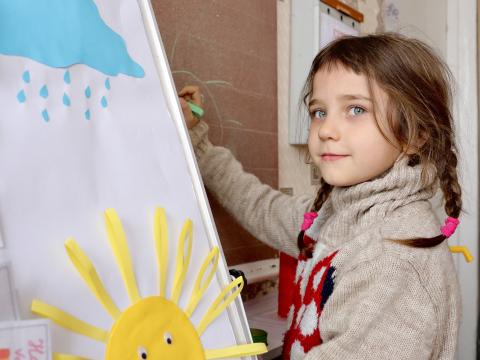
Basarabeasca, Moldova – Children from the small village of Sadaclia actively join the psychosocial activities every day led by team from World Vision’s partner Ave Copiii supported by the Australian Government through the Australian Humanitarian Partnership (AHP).
The Protection and Education in Emergencies Project for Ukrainian refugee children and children of the vulnerable families of the host community in Moldova provides children the opportunity to strengthen their mental health and educational resources.
Eight-year-old Valentina enters the bright room as she greets Nadejda, the facilitator. She is eager to start the art session. The rest of the children gather their pencils, drawing brushes, and watercolors as the main theme for their day’s artwork was being announced.
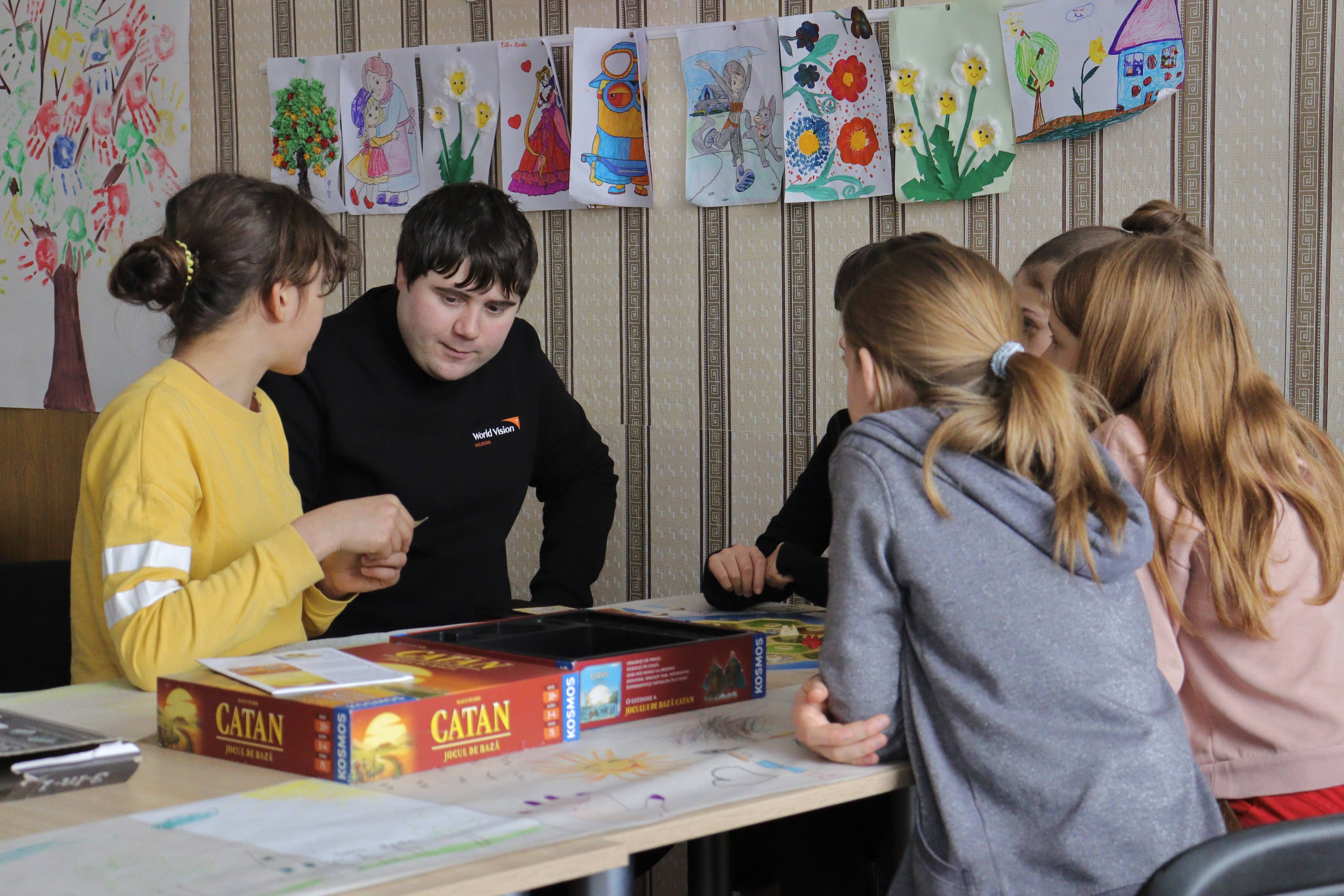
“Close your eyes for a few seconds and think about what family means to you”, Nadejda Gribinet, the coordinator of the child-friendly space asked the group. The soothing music quietened the children. “Draw all that comes to your mind on the blank piece of paper in front of you”, she explains.
“Children come out of their school classes, and I can see how tired they are. The school system is designed for teachers to talk and students to listen. Children are passively involved in the learning process for six to seven hours a day,” shares Gribinet.
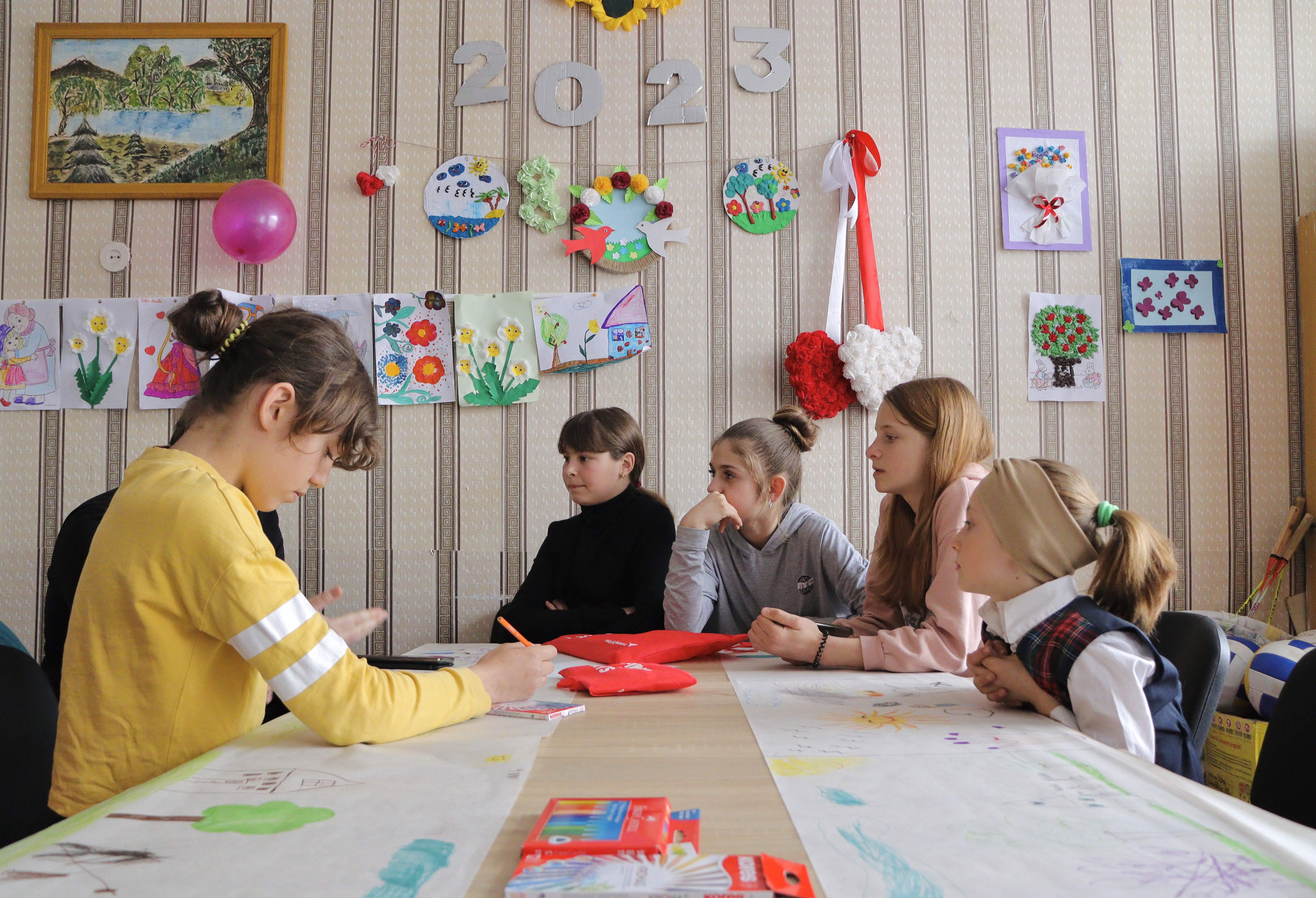
She adds, “Often nobody considers their emotional needs. When they come here, I try to give them the freedom to choose which kind of activities they want to do, making them feel safe and be heard.” The children do their artwork and then put up in a display. The others play board games and complete their homework.
“I always offer them two activity options. For example, do they want to draw today or do crossword puzzles and riddles? They have a choice. It is critical to provide children with alternatives and let them know they have freedom of choice,” explains Gribinet.
Not all children have access to learning activities. Their parents work eight hours a day and do not have time to spend with their children. I want them to feel loved, cared for and respected when they are here.
“I feel safe here. This place represents peace, freedom, and love. I come to unwind while also being productive. I participate in handicraft activities, painting, board games, crossword puzzles, or do our homework,” shares Daniela, 12, as she pulls the cards from the brown box to play her favorite game.
An echo of laughter fills the air as children swarm around Gribinet. She tells them to divide into groups of five and engage in their preferred activity. Valentina approaches the board and draws a sun with thin chalk once she has grown tired of playing with the yellow balloon.
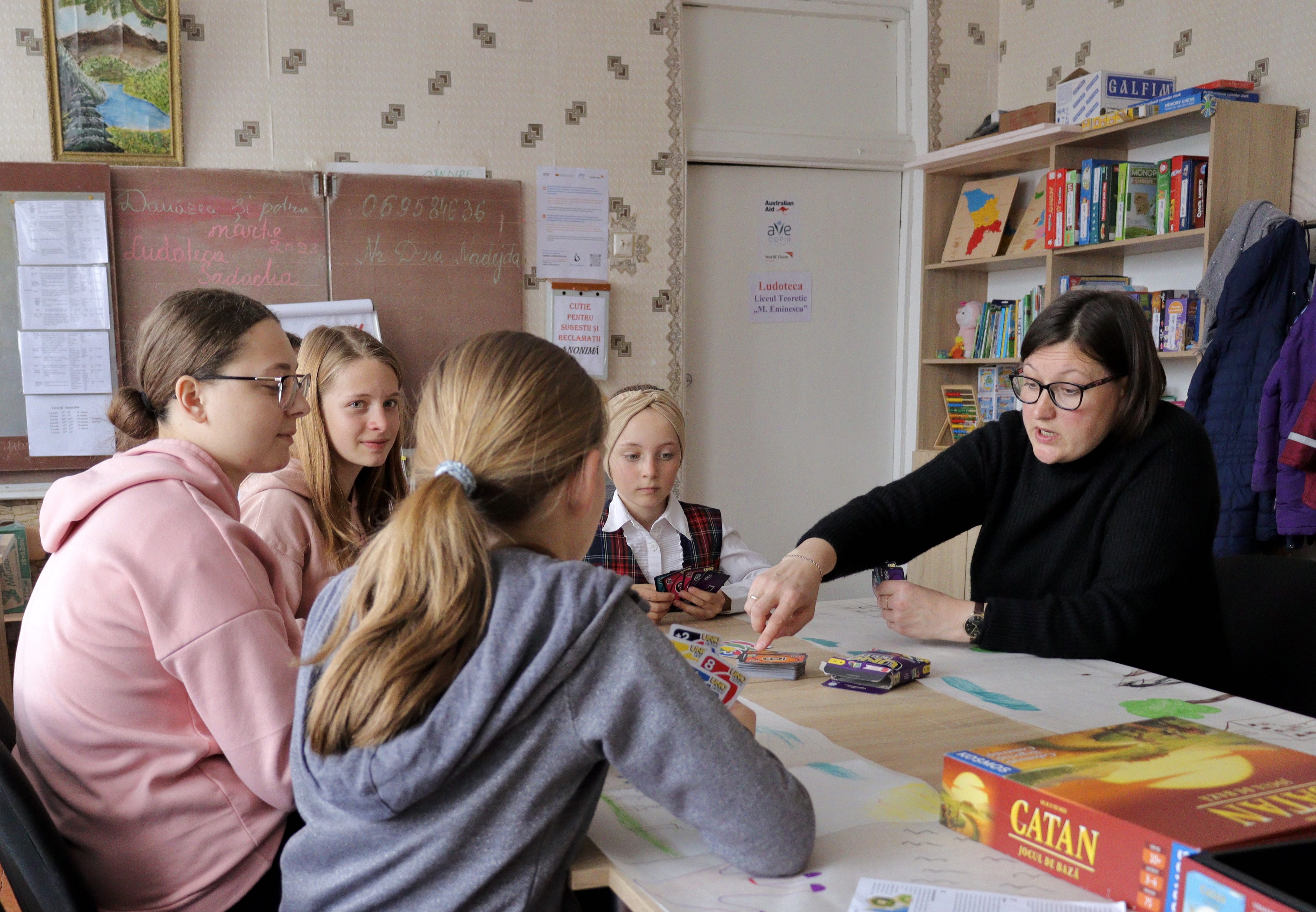
“Not all children have access to learning activities. Their parents work eight hours a day and do not have time to spend with their children. I want them to feel loved, cared for and respected when they are here,” she explains.
“By establishing 10 child-friendly spaces, World Vision helps address the need of Ukrainian families and hosting communities to access mental health and education programs. The project facilitates formal and non-formal education, catch-up classes to reduce school drop-outs and promote integration into the new context,” shares Cristina Virschi, World Vision’s project coordinator.
Activities are facilitated by professional educators and trained by World Vision in mental health and psychosocial support (MHPSS), protection from sexual exploitation and abuse (PSEA), gender-based violence (GBV), and First Aid Arts, according to Virschi.
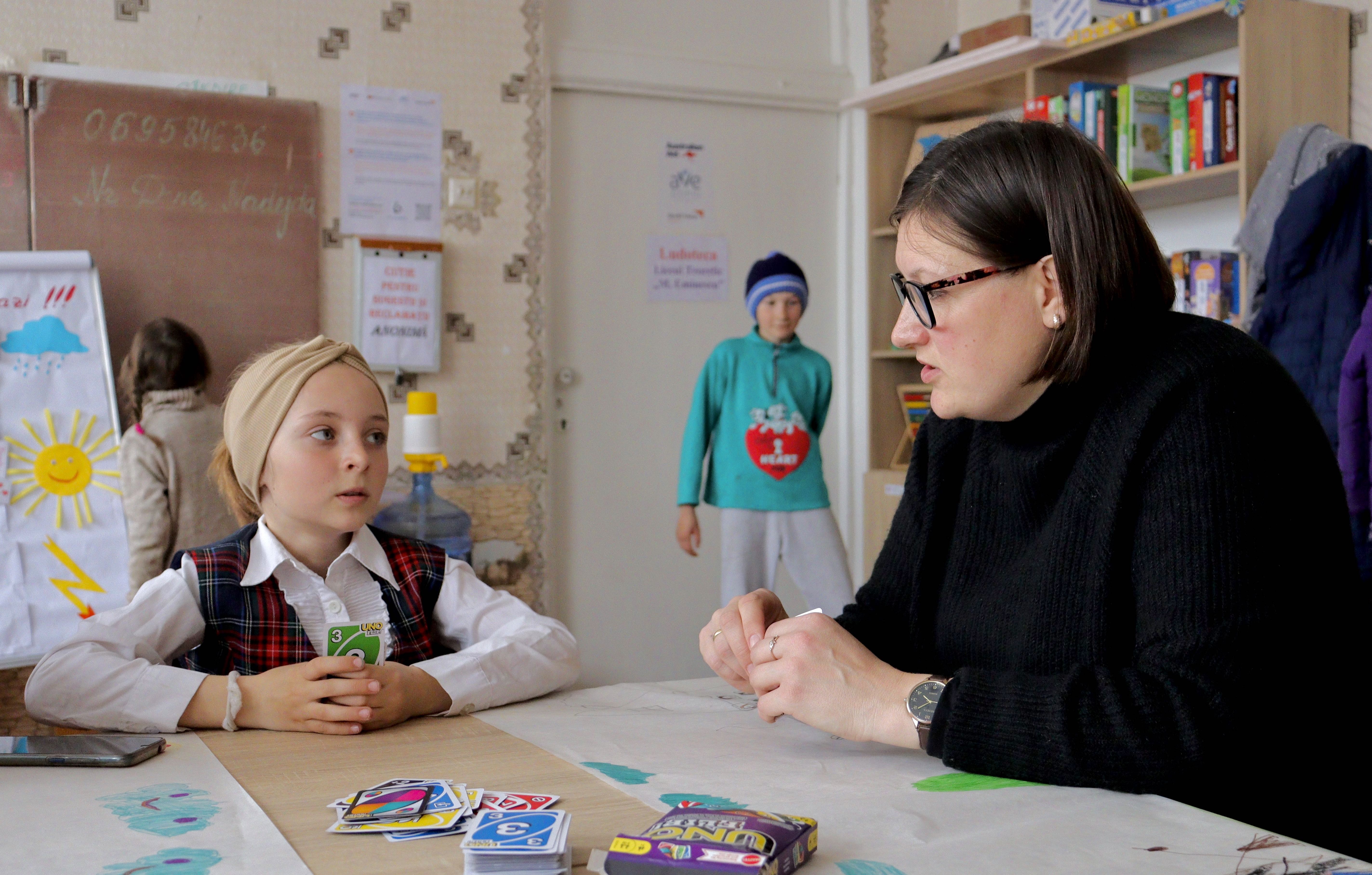
“In these inclusive spaces, children make friends, play, dance, sing, and learn about their right to respect and expression. The result is seen through improved communication, participation with good results, and resilience, their hope for a better future”, Virschi concludes.
To date, World Vision in Moldova has reached more than 26,000 children from Ukraine and hosting communities, offering them education, psychosocial support, and protection, in collaboration with local partners such as Ave Copiii, Step by Step and Communitas.
Story and photos by Laurentia Jora, Communications Officer